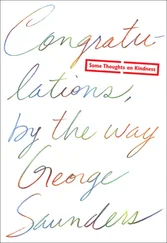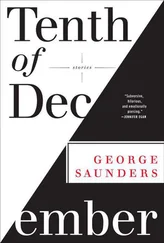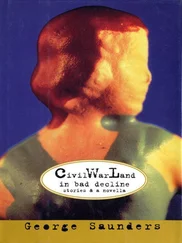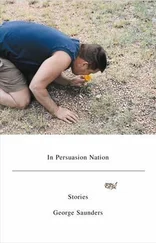Suddenly, the question of his not eating seems almost beside the point.
The young monk says that if we like, we may now do a circumambulation. Meaning: Time’s up.
We start off, the young monk accompanying us.
His name, he says, is Prem.
WHAT WE LEARN FROM PREM
Prem grew up with the boy; they’re distant cousins, but he characterizes them as “more friends than relatives.” They became monks at the same time, just after fourth grade. A couple of years ago, they traveled together to Lumbini, the birthplace of the Buddha, for a ten-day Buddhist ceremony being led by a renowned teacher from Dehra Dun, India. There the boy was invited to undertake a three-year retreat at this lama’s monastery.
But after one year, the boy left the monastery— fled is the verb Prem uses — with just the clothes on his back. Prem doesn’t know why. Nobody does. The boy came home briefly, vanished again, after a dream in which a god appeared to him and told him that if he didn’t leave home he would die. His distraught family found him under this tree, rarely speaking, refusing food. The family and the villagers were mortified, embarrassed, demanded he stop. He was teased, poked with sticks, tempted with food, but still refused to eat. Three months into his meditation, he called for Prem, asked him to manage the site, minimize the noise. Prem is now his main attendant, here every day from early morning until dusk.
“Who is inside the Enclosure with him at night?” I ask.
“Nobody,” Prem says.
Prem shows us an area just inside the fence where, per the boy’s request, Prem performs Buddhist rituals: a puja table, incense pots, texts.
It was just here, he tells us, that the first snake, crawling in, got stuck under the fence. The monks assisting at the time couldn’t kill it, for religious reasons, and were struggling inefficiently to free it. Finally, the boy got up from his meditation, walked over, and freed the snake. As he did so, the snake lunged up and bit him.
“What kind of snake was it?” I ask, trying to be journalistic.
“It was…a big jungle snake,” Subel translates.
“Ah,” I say.
The snakes, Prem says, were “arrows” sent by older lamas, jealous because they’d practiced all their lives and hadn’t attained this level of realization.
I ask about the boy’s meditation practice. What exactly is he doing? Does Prem know?
Prem hesitates, says something to Subel in a softer voice.
“His belief is, this boy is God,” Subel says. “God has come to earth in the form of this boy.”
I look at Prem. He looks at me. In his eyes, I see that he knows this statement sounds a little wacky. I try, with my eyes, to communicate my basic acceptance of the possibility.
We have a moment.
Does the boy ever move or adjust his posture?
Prem smiles for the first time, laughs even. The sense is: Ha, very funny, believe me, he never moves. People accuse us all the time, he says. They say, This is not a boy, it is a statue, a dummy, something carved from clay.
What was the boy like as a cousin, as a friend?
A good boy. Very sweet-hearted. Never cursed. Did not drink alcohol or eat meat.
He would always smile first, then speak.
A BRIEF CHAT WITH THE MAN
Back near the Shoe Corral, we talk with the Village Guy. He seems frazzled, overworked, cognizant of the fact that anybody with a lick of sense would suspect him and the Committee of being at the heart of any hoax, anxious to address such concerns in a straightforward way. He reminds me of one of my down-to-earth Chicago uncles, if one of my Chicago uncles suddenly found himself neglecting everything else in his life to tend to a miracle. His attitude seems to be: Why should I lie? You think I’m enjoying this? You want to take over? So far the Committee has collected approximately 445,000 rupees (about $6,500). A portion of this is used for site maintenance and the small salaries of eighteen volunteers; the rest is being held in a bank for the boy.
Something occurs to me: It’s one thing to, from afar, project a scheming, greedy group of villagers in a faraway land, but when you actually get to the land, you see that, before they were scheming, they had intact, in-place lives, lives that did not involve scheming. They were fathers, husbands, grandfathers, keepers-of-backyard-gardens, local merchants. They had reputations. For someone to risk these preexisting lives (lives which are, in this case, small, impoverished, precarious) would take a considerable level of forethought, risk, and diabolical organization. Imagine that first meeting: Okay, so what we’ll do is get a kid to pretend to be meditating and not eating, then sneak him food and water and get the word out internationally, and before long — bingo — we’ve got six grand in the bank! Everyone in agreement? Ready? Let’s go!
WELCOME, WELCOME, PLEASE LEAVE AT ONCE
After lunch, bound for the boy’s village, we cross a dry riverbed of coarse gray sand, like cremated ashes, into which some men are sinking a water well.
When a fairy tale says, He left his village and set out to seek his fortune , this is the village you might imagine the hero leaving: a cluster of huts along a dirt track. Mustard and corn growing on rounded slopes, higher than your head. Kids racing in dust clouds behind the minivan, baby chicks skittering off into high weeds, as if dropping out of the children’s clothes.
The boy’s mother is home but unhappy to see me. I would describe her reaction as a wince, if a wince could be accomplished without a change of facial expression: As Subel introduces me, she undergoes a kind of full-body stiffening, then plucks three glasses off a tray with the fingers of one hand and disappears brusquely inside the house.
So much for that, I think.
But then a little girl comes out with the three glasses, now full of tea. The mother sits, submitting to torture in the name of politeness. She’s an older woman, pretty, with a nose ring, answers my questions without ever once looking at me.
When he was born, he didn’t cry the way other babies do. Instead, he made a different kind of sound, a sound she describes as a sharp scream.
He kind of shouted out, she says.
As a child, he was totally different from her other children. He was a loner, always wandering off on his own. When people would scold or bully him, he would just smile. When he came back from the monastery in India, his speech patterns had changed: If he kept to small sentences he was fine, but when he tried to talk in longer sentences he would get anxious and agitated and descend into gibberish; no one could understand him. She thought maybe some kind of curse had been put on him by the lama he’d fled. But now she understands: He was going through a profound change. The main problem at this point, she says, is the noise. He can’t concentrate on his meditation. They have gone so far as to outlaw one group from coming to the site, a sect from a particular part of the Tarai, known for being loud. (Subel later relays a common slur about this group: You can’t tell if they’re laughing or screaming in agony.)
All of this is happening for a reason, she says. There is a God in him that is helping him feed himself. She sits quietly, grieved, flies landing on her face, waiting for this to be over.
She puts me in mind, of course, of the Virgin Mary: a simple countrywoman, mother of a son who appears in a time of historical crisis representing a solution and a hope above politics.
We walk back to the van, followed by the flock of kids, who still seem to be miraculously sprouting baby chicks.
Our plan is: Go back to the hotel, get some rest. Come back tomorrow, spend the night, see if some kind of Secret Eating is taking place.
Читать дальше












